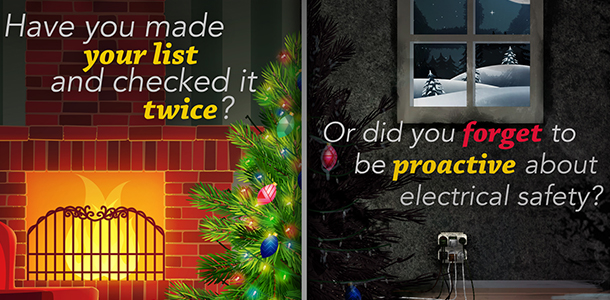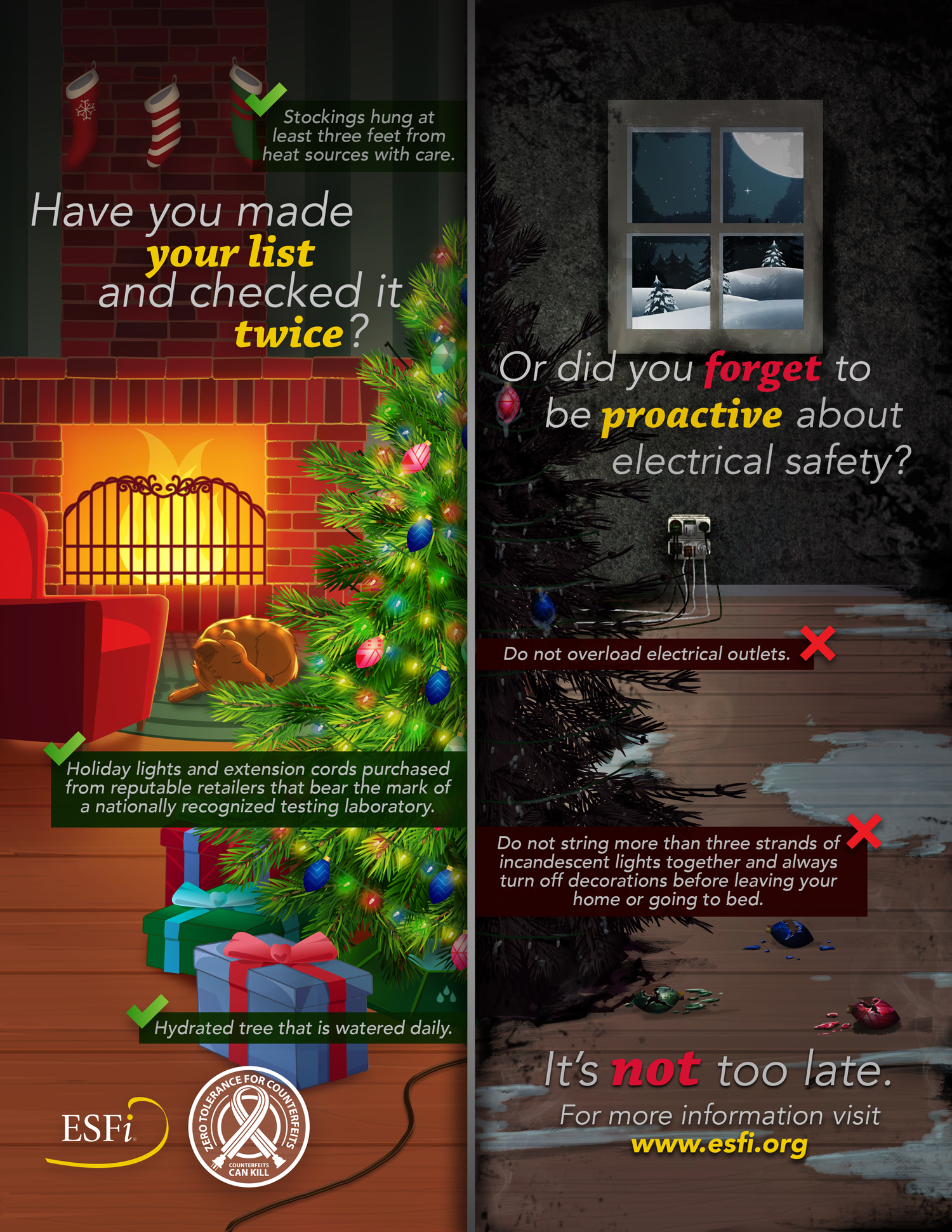Have you made your holiday safety list and checked it twice?

Did you know that home fires and electrical accidents typically increase during the winter months? According to the National Fire Protection Association (NFPA), 30% of home fires and 38% of home fire deaths occur during the months of December, January, and February.
There are steps that can be taken to help reduce the risks of death and injury from a home fire this holiday season. It is critical that families keep fire safety in mind while enjoying this festive, exciting and extremely busy time of year.
Here are a few steps that you can take to help ensure the safety of your family during the holiday season:
- Smoke alarms.
Smoke alarms should be installed in every bedroom, outside each sleeping area, and on every level of the home. Take a few minutes to test your smoke alarms and replace any batteries that appear weak or are dead.
- Heating.
As the nights get colder, some may turn to space heaters for warmth. Space heaters are only meant to provide supplemental heat. Proper placement of space heaters is critical. Heaters must be kept at least three feet away from anything that can burn, including papers, clothing and rugs. Plug space heaters directly into a wall outlet. Do not use an extension cord or power strip, which could overheat and result in a fire. Do not plug any other electrical devices into the same outlet as the heater.
- Cooking.
Never leave cooking equipment unattended. Turn off burners if you have to leave the room. Plug countertop appliances into Ground Fault Circuit Interrupter (GFCI)-protected outlets. Unplug countertop appliances when not in use. When cooking is complete, be sure to turn off all appliances.
- Decorating.
Use lights approved for safe use by a nationally recognized testing laboratory. Never connect more than three strands of incandescent lights together. Consider using LED lights, which use less energy and run cooler than traditional incandescent lights. Avoid overloading electrical outlets with too many decorations or electrical devices because they can overheat and cause a fire.
- Extension Cords.
Make sure extension cords are properly rated for their intended use, indoor or outdoor, and meet or exceed the power needs of the appliance or device being used. Inspect cords for damage before use. Check for cracked or frayed sockets, loose or bare wires, and loose connections. Make sure that cords are not pinched in doors, windows, or under heavy furniture, which could damage the cord’s insulation.
For outdoor decorating safety tips, check out our blog post here.
For indoor decorating safety tips, check out our blog post here.

Download the above holiday electrical safety infographic (PDF).


